There are countless benefits to neutering or spaying your cat, and the advantages of the procedure certainly outweigh the disadvantages. However there are many misconceptions about the impact and expectations surrounding this procedure.
Cat neutering is best done before a cat reaches sexual maturity. For female cats, spaying must be done before reaching six months and for male cats, before reaching nine months. Neutering a cat too early may increase the risk of developing urethral blockage, especially in male cats. Since the cat is often considered fully mature in all aspects around six months of age, it is better to start neutering around that time.
Neutering will also decrease the response of males from the scent of female hormones. Un-spayed females go through their heat cycle or “calling” cycle every three weeks. As the name suggests, this event includes noisy calls to attract a male. Neutered cats also develop more affection to humans and usually become more calm and affectionate towards their owners and to other pets.
To reduce pain and discomfort, both neutering and spaying are performed while your cat is under general anesthesia, and must be performed only by a licensed veterinarian. Most cats are able to resume their normal activities within a few days, and the stitches are removed after about two weeks. Following the procedure, your vet will advise you on how to best care for your cat while he/she is recovering.
Following are eight common cat neutering myths and why they need to be debunked.
Myth #1: My cat will become overweight
Neutered cats have a tendency to gain weight, since they are no longer driven to roam as they were previously. However, your cat’s weight can be managed effectively through proper diet, enough exercise, and constant monitoring of its food intake, you can substantially reduce the risk of your cat’s weight gain.
A good number of pet food companies produce feeds formulated especially for dietary needs. All you have to do is consult your veterinarian regarding the right amount of food for your cat. The vet should be able to offer healthy guidelines for monitoring the cat’s weight. Moreover, plenty of toys are available to keep your cat active and stimulated.
Myth #2: Neutering traumatizes the cat
The truth is that cats (or pets in general) don’t feel sad when they lose their ability to give birth. The primary reason they reproduce is to ensure the longevity of their species.
A few weeks after giving birth, mother cats nurse their kittens and teach them rules. But after such time, queens let their offspring be on their own. Furthermore, tomcats are not known to father their kittens and don’t even involve themselves in nurturing their juveniles. The negative psychological effects of neutering, therefore, are not true.
Myth #3: Neutering is dangerous
The surgical procedures of spaying or neutering are some of the most commonly performed operations in the field of veterinary. They’re very safe and don’t take long hours to finish. After the procedure, the vet prescribes some pain relievers to help in the recovery process. Complications related to surgery are uncommon. It is especially true when the caretaker or owner follows all the post-surgical care guidelines.
Myth #4: Neutering is an inhumane way to control overpopulation
Initially, neutering was handy when it came to ending the suffering of a cat due to extreme circumstances like terminal illnesses. Today, the procedure is safe and acceptable in controlling the population of cats and other domestic animals. In fact, there are many other reasons to neuter your cat apart from population control.
Myth #5: Neutering fixes many behavioral problems
Actually, neutering tones down unwanted behaviors related to high testosterone levels like mounting on other cats and urinating all over the house. However, expecting your pet to completely change its personality through neutering is totally unrealistic. The procedure can’t change the cat’s personality, which he or she has developed over time. Neutering can’t give your cat a quick makeover…that’ll still be dependent how well you train Fluffy.
Photo: From the IG feed @jimmy_and_choo – two adorable and mischievous British short hairs that we love
Myth #6: My cat is too old
Since early cat neutering is important, you can neuter cats when they’re 8 weeks young, or they weigh two pounds. With safer anesthetic drugs and advanced techniques, vets can perform the procedure smoothly.
Did you know that even older cats and dogs benefit immensely from neutering? A vet needs to perform pre-surgical blood work on cats that are seven years and above. The test checks kidney and liver function prior to giving him or her the anesthesia.
Myth #7: It’s healthier to allow my cat to have one litter first
Medical evidence suggests that females spayed prior to their maiden heat are healthier. Female cats, which don’t undergo the procedure prior to their first heat, have a higher risk of uterus infections or breast cancer. When it comes to the males, cats neutered early in life boast a lesser risk of prostate infections.
Myth #8: Neutering is very costly
Responsibility is part of pet ownership. You have to be a responsible pet owner and that includes its reproductive health. The cost of the neutering procedure definitely pales when compared to that of sheltering the countless cats that live as strays and hardly find good homes.
Is personal finance a problem? If yes, you can contact your local Spay-Neuter Assistance Program. The organization conducts the procedure at a subsidized cost for pet owners with financial hardships. With the availability of the facility, you no longer have a reason not to neuter your cat.
Summary
There’s no doubt that cat neutering is one of the best health decisions a pet owner can ever make. The only downside to neutering your cat is that your cat will no longer be able to reproduce. This is generally a problem only if you are breeding cats. Otherwise, in terms of helping to prevent pet overpopulation as well as allowing your cat to lead a longer and healthier life, the best gift that you can offer your cat is to have them neutered/spayed.
The procedure brings with it numerous advantages. Sadly, there’s so much misinformation out there, so if you’ve been having difficulty in knowing what’s true or not, it always helps to conduct your own research or simply talk to a veterinarian.
Guest Author
Much of this post was contributed from a reader named Anna Joanne. She has an undying love for cats. In fact, she is currently taking care of two stray cats: Ross, a shiny black cat, and Millie, a black and white cat. To provide the proper care for her furry friends, she works as a content writer who loves to write about animals.

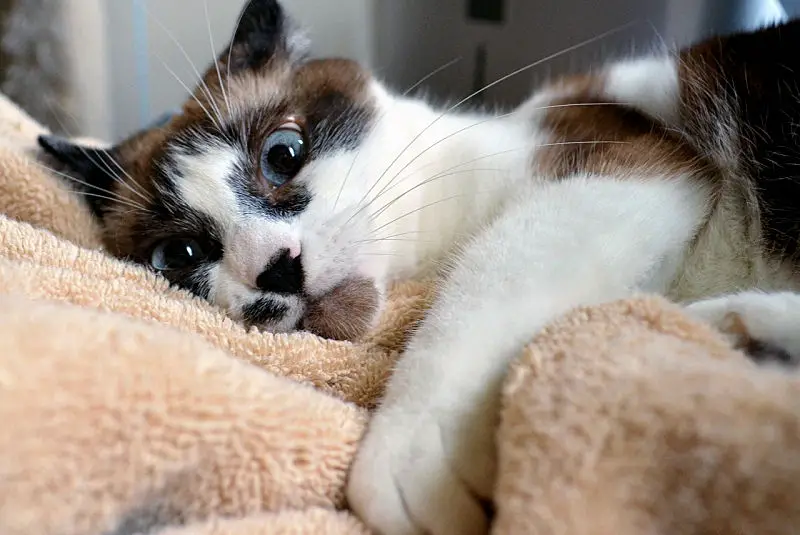

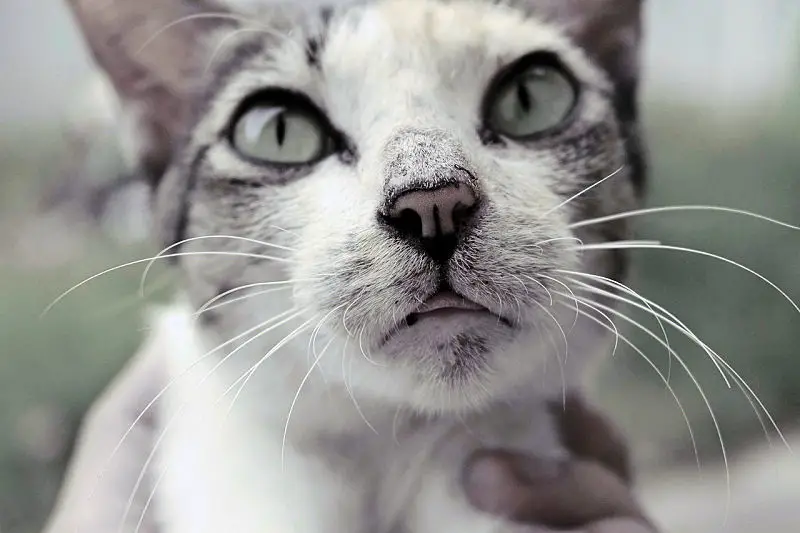
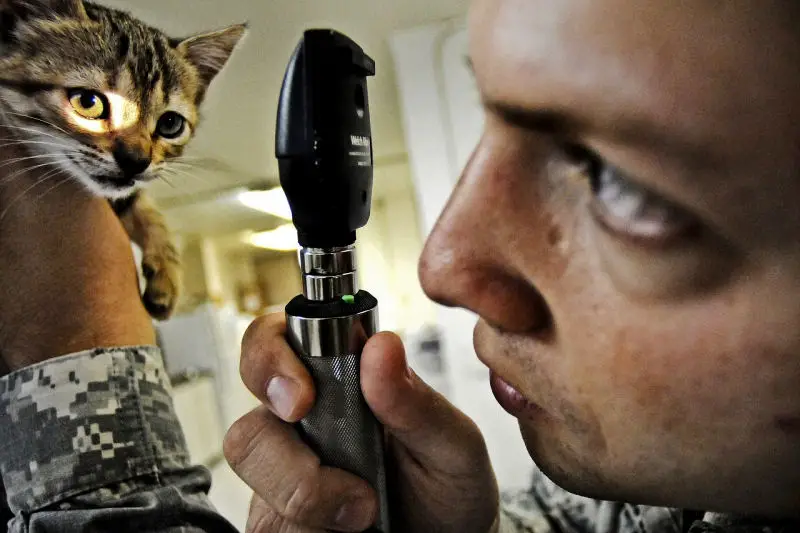
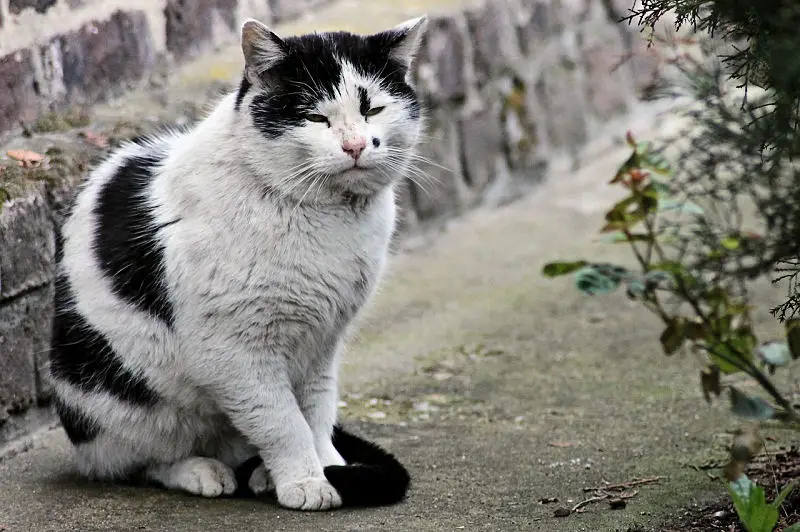
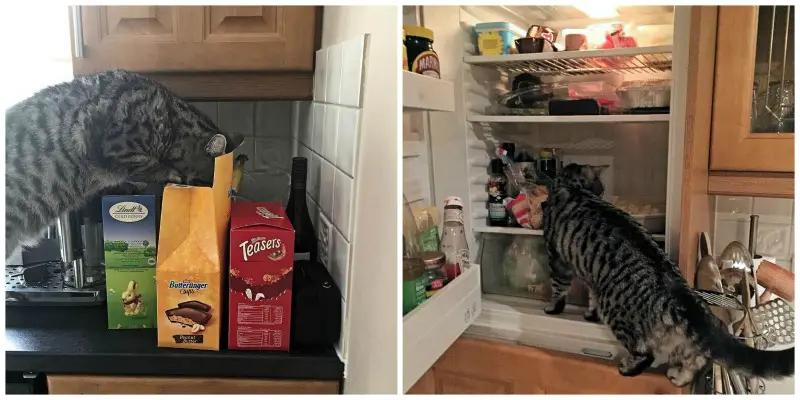

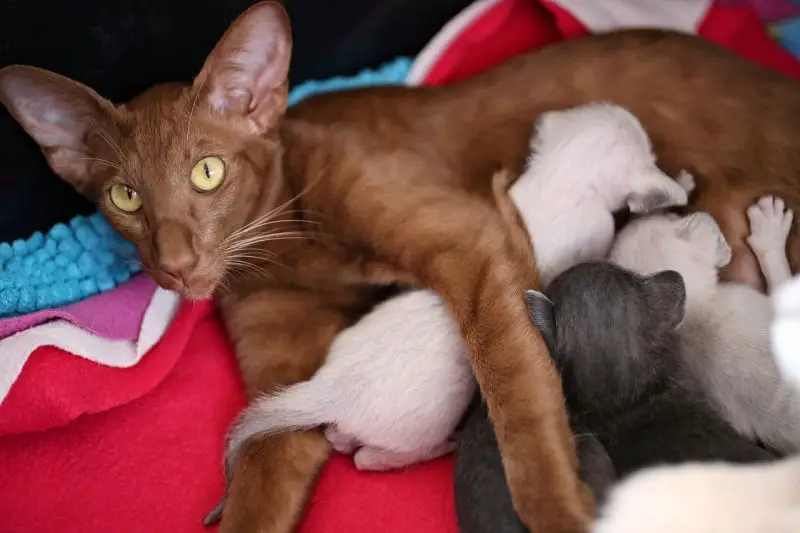
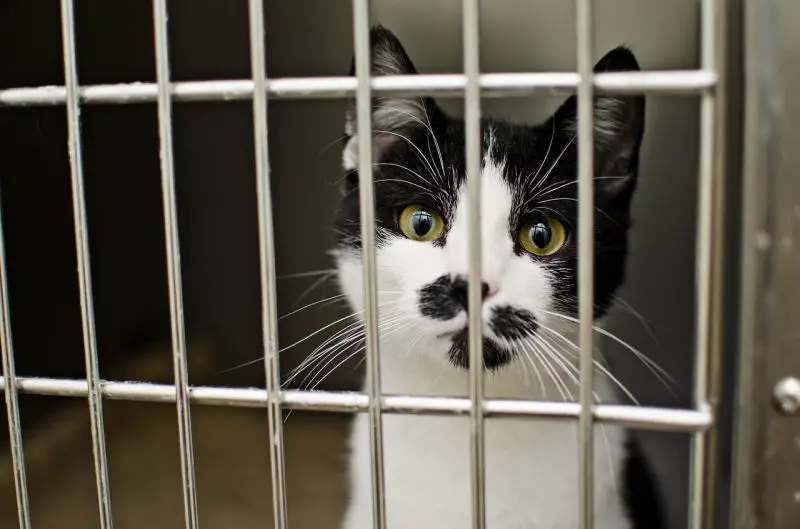


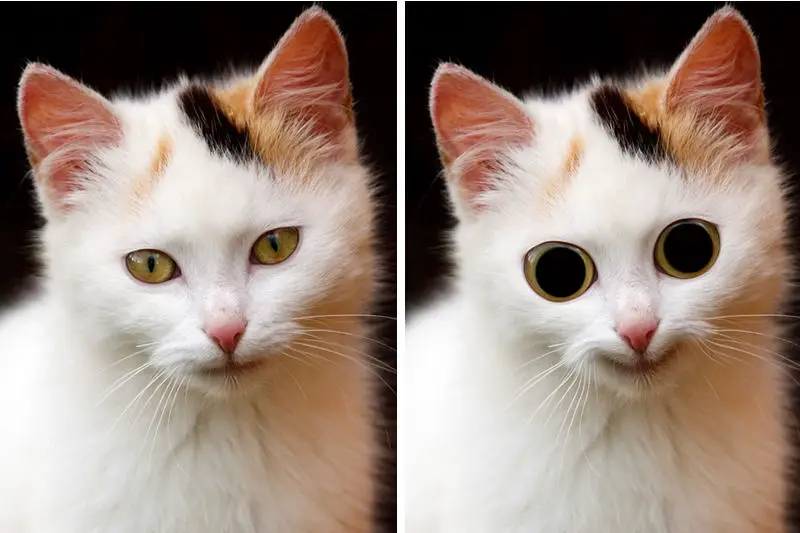

I took my 4 month old beautiful, sweet Maine Coone to be neutered on Valentine’s Day 2019. When I arrived to pick him up they told me he was dead. He did not survive the surgery. I was in shock, very angry and devastated. My heart broke in a million pieces….
I’m taking my Maine Coon kitten in soon by now I’m really doubting it. What happened?
This is a tragic event….but fortunately extremely rare. Any surgery where anesthesia is used, in humans and animals….will very rarely result in death from anesthesia. That doesn’t mean anyone should shy away from neutering your pets. The fact is, there are very occasional deaths during surgery in all human and animal surgeries. Some anesthesia deaths are totally unavoidable….some are caused by incompetence in the use of correct amounts or types of anesthesia. It’s worth exploring what happened.
But overall neutering…and all surgery for us and our pets is quite safe. So sorry this happened.
Oh my. I just had my male orange tabby neutered. Can you share what happened?
I think it’s naive to think the only possible negative impact on a cat from neutering might be in relation to their sadness over being able to have children. Neutering the cat may be necessary, but it does change them on a very fundamental, hormonal level, and if you think that’s nothing, then you’ve not had to deal with hormonal imbalances and even lack of hormones in a human or experienced how much of an impact that can have on a person’s behavior and personality. We are shaped by our genetics and upbringing, yes, but our brain chemistry (hormones produced as part of our reproductive systems that are stymied by neutering) also has an enormous impact. Dismissing concerns with neutering is irresponsible. Yes, it’s often the best choice for cats. But that does not make it risk free, or mean that it doesn’t truly affect the cat on a more fundamental level. It’s a matter of weighing the cost v benefit.
my male kitten is going to be a year old next month in July however since being fixed he got netured and he still has his hyper ways of running around and such. i’m wondering if he will ever calm down. he has feral barn incest cat blood in him. my friend gave him to me after my older cat died. i never had to deal with a cat like him but he is wild and the only discpline i find to work on him is a spray bottle filled with water. even though he swims in the bath tub and enjoys taking showers. this is my first ever male cat. My last cat was a female. any tips and advice?
He’s just coming into his “teenage” years. You might see him calm down after he’s 18 months – 2 years. However, I have a couple boys (7 years old now) that are still really active at times, but I think that just comes with their personality.
Oh nooo! That’s so sad 😢, I’m sorry that happened to you Misty. Where on earth did you take him for the procedure? I have a six month old MC and was planning to get him neutered soon because he is so aggressive but now I am concerned. Please tell us more about what happened. Thanks, and again, sorry for your loss. Hope you feel better soon and can find happiness with another furr baby. I know it takes time to heal. God bless.
In debunking Myth number 2, the author writes that “the “primary reason they reproduce is to ensure the longevity of their species.” This is absolutely untrue. The primary and ONLY reason any animal reproduces is to contribute more of their own genes to the gene pool. It is all about evolution.
Please correct this error.
Hi. I have a quick question. There is a female cat living under my house. She just had a 2nd litter about a month ago. We are feeding mom & “the boys”, as we call them. We plan to take the new batch to a shelter. My question is, how long should we wait to take mom in? As she is still nursing the new batch.
8 weeks.
I had my Chinchilla male neutered at 16 weeks as advised. His health suddenly deteriorated and he was diagnosed with FIP and after many trips to the vet and intravenous drips he withered away and sadly died 3 months later. I’m still heartbroken. He was a lively happy kitty before the surgery. He came from a very reputable breeder with all vacs and tests etc up to date. Is it possible he contracted FIP at the Vet or was the stress of the surgery too much for him? The reasons for his quick deterioration still bothers me immensely
FIP is contracted from infected cats. There is no test for FIP prior to a cat showing signs. Your kitten could have been infected at the cattery or by another cat (do you have other cats? do you let your kitten outside? do you do rescue work and come home and pet your kitten without first changing clothes and showering?). FIP is really sad and it’s incurable. There is a vaccine available but it remains an uncommon, devastating disease. I’m sorry for your loss. You should report it to your breeder so they are aware. A responsible breeder wants to know all medical problems.
How common is feline Aids? Just asking
I’m pretty sure the only reason they reproduce is because biology (hormones) demands it. They don’t care about the longevity of the species or their genes. They just follow their urges without concern for why or for consequences. Only humans can/have to consider the impact of/reason for their reproduction.
We have a lovely male Siamese. He was very affectionate to us. Wanted to be scratched, rolled around under our feet anytime we went to the bathroom. He would come lay on the bed and get his morning attention from us.
We got him neutered. Now he wants to be alone. Never comes for loving, scratchings and rubbings. He NEVER follows us to the bathroom anymore. It changed him to where now… He eats, walks outside and lays on the porch, comes in and lays on the cat bed, walks to whatever room we’re not in. He has never purred one single time, since being neutered.
All the good things about owning a cat are now gone. My wife even said “I just don’t feel any love from or for him anymore”.
What can we do?
It is a mistake to ‘Fix’ your cat or dog it removes their ability to produce the hormones they need to stay healthy, and in fact you will end up with a very sick cat or dog later on in life because of it.
In Europe most vets will give the male cats and dogs a vasectomy and will remove the females ovaries, not only does this allow the animal a healthier and longer lifespan it is in my opinion a more humane thing to do as it’s much less invasive and traumatic for both the pet and the owner.
It’s the greed in the industry that pushes such expensive and invasive treatments on the pet owners, in Canada and North America they won’t even consider any other options like vasectomy or removal of the ovaries.
They also don’t offer hormone replacement therapy as Doctors do to keep humans healthy, think about it.
I’m more confused than ever now! I just got him 9 days ago,was told he was 7 months but discovered he is at least 15 months! I am taking him to vet payday and hope for the best!????
I don’t know why either you or your author included the debunked myth that ” Neutering a cat too early may increase the risk of developing urethral blockage, especially in male cats.” In fact, that entire paragraph is inaccurate and needs to be changed, and the last sentence refutes the earlier sentences. Cats enter sexual maturity and can reproduce at four months. There is no difference in timing for males or females.
Studies have shown there is no effect on the urethra in males or females spayed or neutered at any age, 7 weeks or one year old. https://iaabc.org/cat/is-early-spay-neuter-related-to-the-development-of-behavior-problems-in-kit
Pediatric patients recover faster with fewer infections and side effects: https://cfa.org/early-spay-neuter/
Both studies show that the effect of pediatric spay and neuter on behavior is positive–they never get the chance to develop negative behaviors related to sexual maturity.
Read the international campaign, Feline Fix By Five, founded by researchers and veterinarians to have cats spayed by five months: https://www.felinefixbyfive.org/
As a lifelong advocate for cats who works 365 days a year for them, I STRONGLY encourage everyone to spay/neuter. Through hard work and dedication, those of us in the advocacy community have brought down the number of impounded companion animals “euthanized” annually from around 17 MILLION in 1984 to less than half a million in 2019, we need that number to be zero except in cases where true euthasia, that is, for reasons of terminal illness or in the case of dogs, viciousness and danger to other animals and/or humans, is indicated. EVERY cat adopted from “shelters” or the community needs to be neutered, for his/her health and for the reduction and cessation of taking the lives of innocent, loving cats simply because they are not homed.
I have 2 adorable cats, a male, and a female. I am very concerned about the issue of cat neutering. As far as I know in male cats this is related to spaying and male hormone removal. The former means your pet will no longer be able to reproduce or give birth to kittens.
It is funny to read statements about neutering and spaying as a nonchalant thing to do. If any of you studied any kind of biology course , basics, you will understand that hormones and chemical balance inside any living thing, mammals in this case (humans, cats, dogs, etc) are a wonder of nature, a balance that is not to be messed up with. The same changes that happen to a cat upon neutering would happen to a human or a horse or a lion upon neutering. Try to imagine a boy neutered at 5 years of age and compare it to a normal intact boy. physically speaking. Many would say … “you are comparing humans …”… what I am doing is trying to make you understand not the psychological aspect of it, not comparing what a human would endure psychologically speaking to what a cat would, but the body development , externally and internally
wise, the hormones are not in our bodies for show. Those that claim messing with hormones is just no issue are either lying or ignorant to the matter. Like it happens in Europe and rear of the world, a vasectomy or tube ligation in case of females would stop unwanted pregnancies. If you want to go ahead and spay/ neuter your cat, go ahead, but rather than believing in lies about it having no consequences, inform yourselves well and learn those inevitable consequences. I understand the plight about cat aggression and unwanted pregnancies, but the way to talk about the benefits spay and neutering could offer should be by talking about the downside of it as well. Lying like the pro neutering groups do is dishonest.